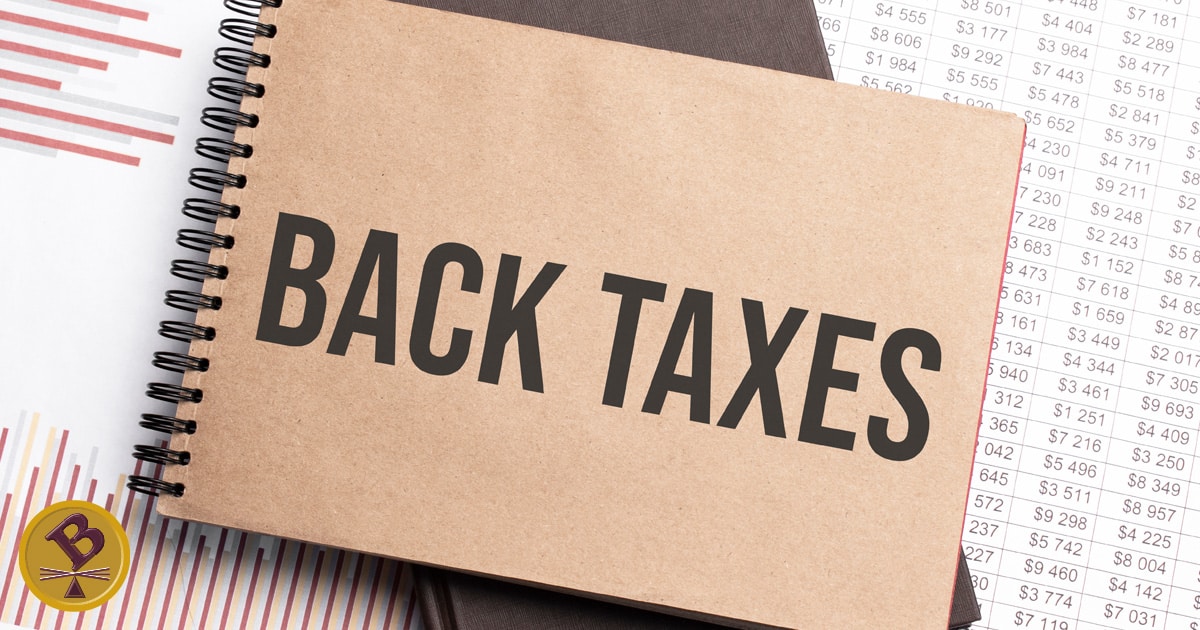Do you wonder what you should do if you owe money to the IRS? What if you owe back taxes to the IRS? Owing money to the government can be stressful.
If you find out you owe money to the IRS, stay calm. There is no reason to panic. It may have been a filing mistake or calculation error. However, back owed taxes may result in penalties and interest over time if not paid.
The options provided are better than avoiding your IRS bill altogether. According to the IRS, in 2019, more than 4 billion taxpayers held some form of payment plan with the agency. What options do you have to settle back taxes?
Will the IRS work with you on paying taxes?
Yes, if your circumstances fit specifications. There are multiple tax resolutions available.
The IRS requires a $31 setup fee if your payments are withdrawn monthly from your bank account. Alternatively, any other payment option is a $149 setup fee.
This fee can be lowered to $43 if you meet the low-income criteria.
Options for Settling Back Taxes with the IRS
#1. Request an extension.
You can request a 180-day extension. The IRS can grant a short-term extension on the money owed.
You can qualify for a short-term extension if you owe less than $100,000. This amount needs to include penalties and interest. You do not have to make a monthly installment. However, the amount needs to be paid in full by the deadline.
The most efficient way to apply for this option is online. You may even get an immediate response if you apply online.
#2. Set up a payment plan.
Another option to settle back taxes is to set up a payment plan. An IRS payment plan is called an installment agreement. The terms of the agreement will depend on the amount you owe and your ability to pay it back.
You can qualify for this agreement if you owe less than $50,000, including penalties and interest.
You should not use this option if you can and qualify for option #1. With an installment agreement, your penalties drop to 0.25% per month if you pay on time. The IRS can void agreements if you do not pay on time.
You can also apply for this option online or fill out Form 9465.
#3. Make an Offer in Compromise.
You have an option to offer a lower amount than owed to the IRS. If approved, the IRS will forgive the remaining balance owed. This is called an Offer in Compromise (OIC).
Factors that the IRS considers when approving an OIC include your asset equity, ability to pay, and income and expenses. You must also be current in your tax return filings and estimated tax payments.
The IRS will also request proof that you cannot pay the balance through other means and options.
Use the IRS pre-qualifier tool to determine if you qualify for this option. This is only an eligibility tool and should be used as information.
You need to complete Form 656 to apply for this option. You need to provide your offer to the IRS and a $205 filing fee along with the form. You have the choice of a lump sum offer or a payment option.
#4. Apply for a Hardship Extension.
If you find that paying the back owed taxes could cause you financial hardship, you may qualify for this option. You could qualify for this type of extension if the IRS finds you unable to pay any of your debt.
A Hardship Extension would place your account in a “currently not collectible” status. This status would only be valid until your financial situation improves.
This option does not eliminate your debt. Rather it keeps the IRS from issuing a tax levy. However, the agency may still decide to issue a tax lien in this status.
You can apply for this extension over the phone. You must be able to prove your claims to be eligible for this option.
#5. Try to reduce your tax bill.
You may qualify to reduce any penalties on your owed taxes. If you have not had any penalties in the three years prior. This option can waive any penalties received.
To qualify, you must have filed all tax returns and have paid any taxes due.
If this is not an option, you can consider penalty relief. You need to provide the IRS with a reasonable cause to be considered. The following causes may be established with the IRS:
- If you or a family member have been impacted by serious illness or death.
- If you cannot obtain your financial records.
- If you have been negatively impacted by weather conditions, natural disasters, casualties, or a fire.
You may also qualify for penalty relief if you have proof of incorrect written advice from the IRS. This is called statutory relief.
#6. Use alternative methods of payment.
You could try alternative payment methods if you are not eligible for any of the options mentioned above.
Take a personal loan.
The fees and costs could vary on this option. You may need to ask a family member or friend or alternatively seek a loan through your financial provider.
Borrow money from your 401K.
If your 401K allows it, you may be able to take a loan from this account. Generally, you cannot take more than 50% with a maximum of $50,000. Most plans require repayment within five years.
Use a debit or credit card.
This option could pay you back through earned rewards such as points or miles. While you would have more control and flexibility with your payments, a higher credit card balance could negatively affect your credit score. Be sure to look into this when considering this option.
Not Sure What to Do About Your Back Taxes?
There are many options you can consider when facing back taxes. The important thing to remember is that there is a manageable option.
Don’t wait until it is too late. Take the time to prepare for the tax season and know your options.
If you owe back taxes to the IRS and are unsure what to do, contact a tax expert! Indiana’s tax expert, Sherry Borshoff, will provide ethical and practical advice.





